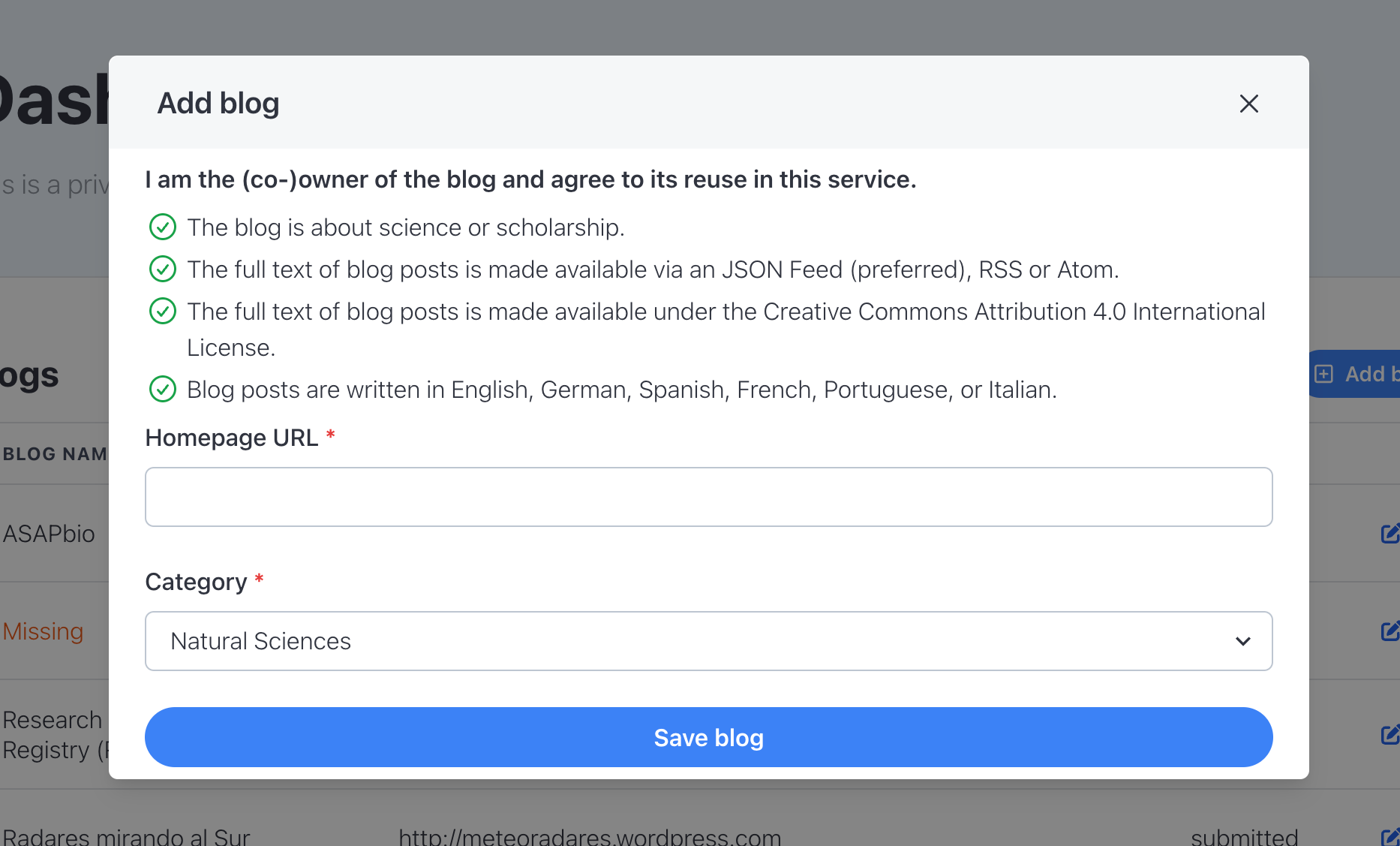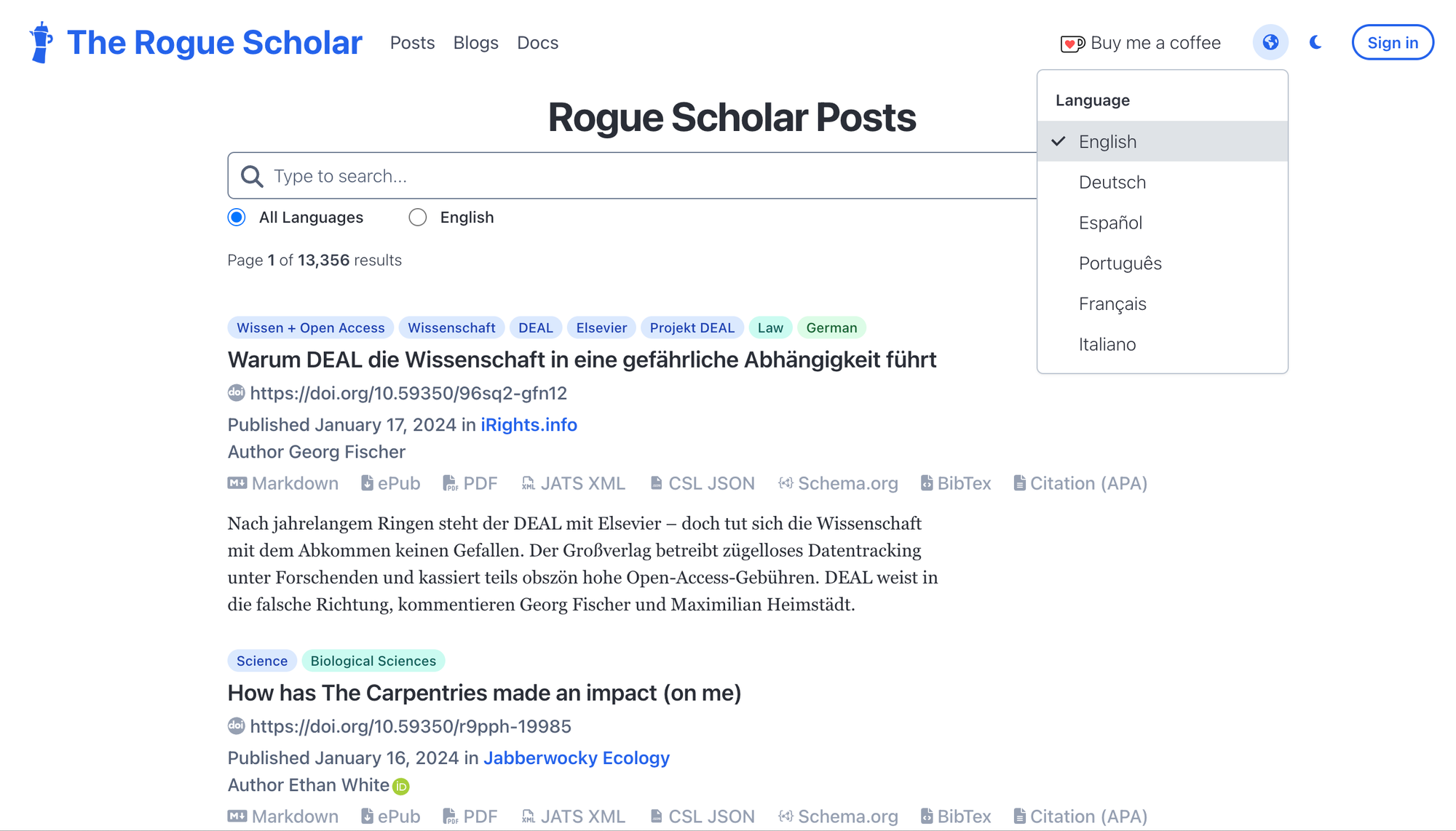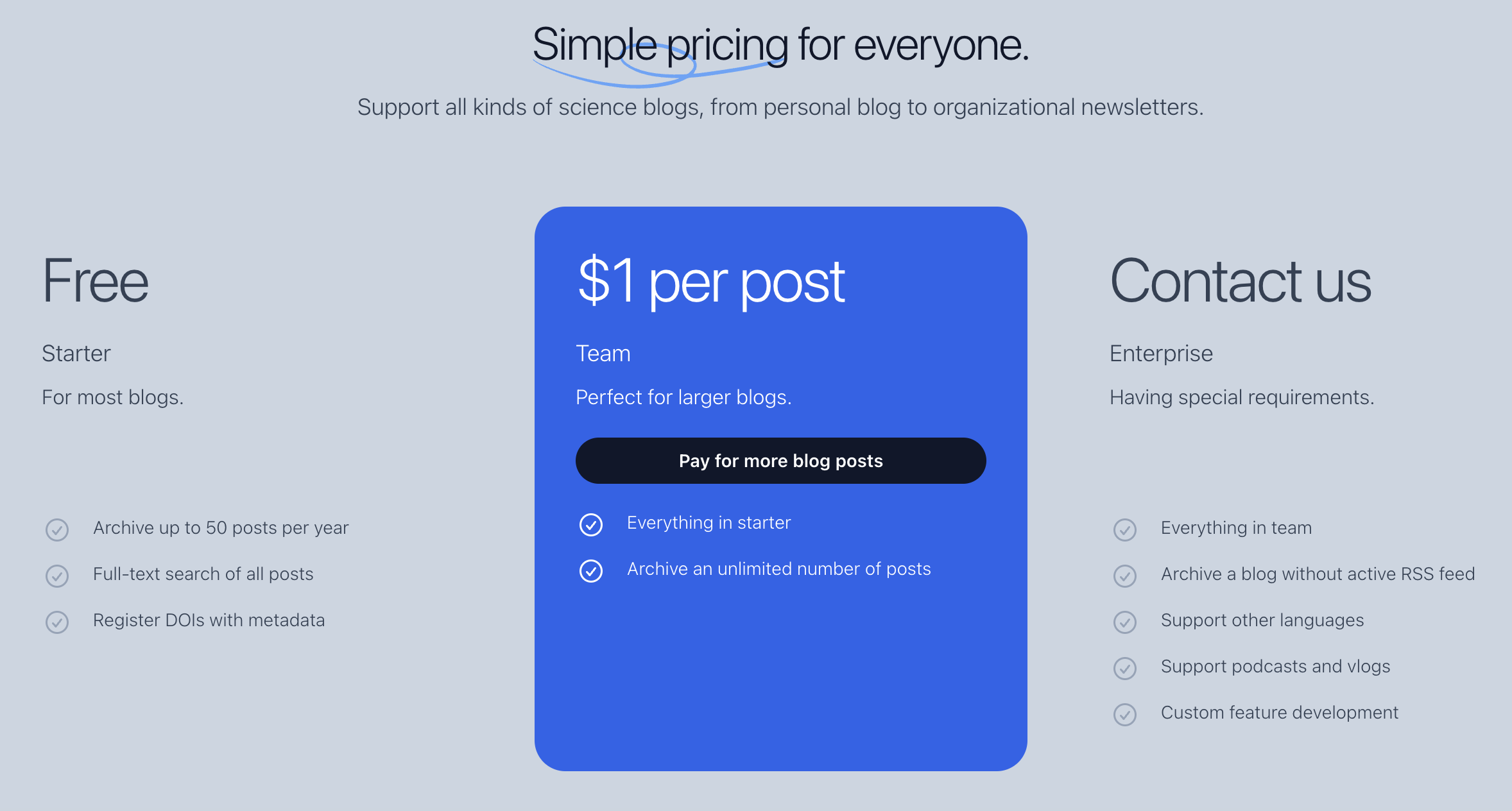Yesterday I had to fix a bug in the Rogue Scholar registration form (a software regression that happened over the holidays related to database row level security). This was a reminder that registering a science blog with the Rogue Scholar science blog archive should be quick and painless.
Today I made one change that hopefully simplifies registration: Ask for the blog homepage instead of the RSS feed URL.

Finding the feed URL is not trivial, as the feed URL is sometimes hard to find and multiple feed formats exist (RSS, Atom, and JSON Feed). RSS is the most popular format but has important limitations compared to Atom and JSON Feed: it doesn't support multiple authors or author attributes (e.g., the ORCID ID), and it doesn't show the update date of posts. And some blogging platforms (e.g. Wordpress, Ghost, Substack) have an API, which is easier to work with than the RSS feed, and thus preferred when available.
Behind the scenes, the Rogue Scholar API is trying to discover the feed URL (and format) from the homepage provided in the registration form and then uses the feed URL to fetch the remaining information (blog name, description, language, feature image, etc.).
The category field lets you pick the OECD Field of Science and Technology for your blog. All the remaining information needed by Rogue Scholar is either fetched automatically by Rogue Scholar or can be sorted out by email.
An important aspect of the registration form is agreeing to a Creative Commons 4.0 Attribution (CC-BY) license for the blog posts, which is needed to extract metadata, enable full-text search, and export content to other formats (e.g. PDF).
The registration form is available in six languages (pick the language in the upper right corner) of every Rogue Scholar page:

You reach the registration form via the sign-in button, and you can create a Rogue Scholar account via email/password, Google, or GitHub.
With this streamlined workflow it should typically not take longer than 24 hours to approve the science blog, archive the full-text content, and start DOI registration.
Cost should not be a reason to stop you from registering your science blog with Rogue Scholar. Up to 50 blog posts per year are free, and more blog posts cost a one-time fee of $1 per post – mainly an issue for high-volume blogs or if the blog has been running for many years. Archiving a backlog of older posts can always happen later, and can also be paid for with donations to Rogue Scholar.

If you have questions regarding registering your science blog with Rogue Scholar, reach out via email, or the comments below. You can also check the Rogue Scholar documentation.


